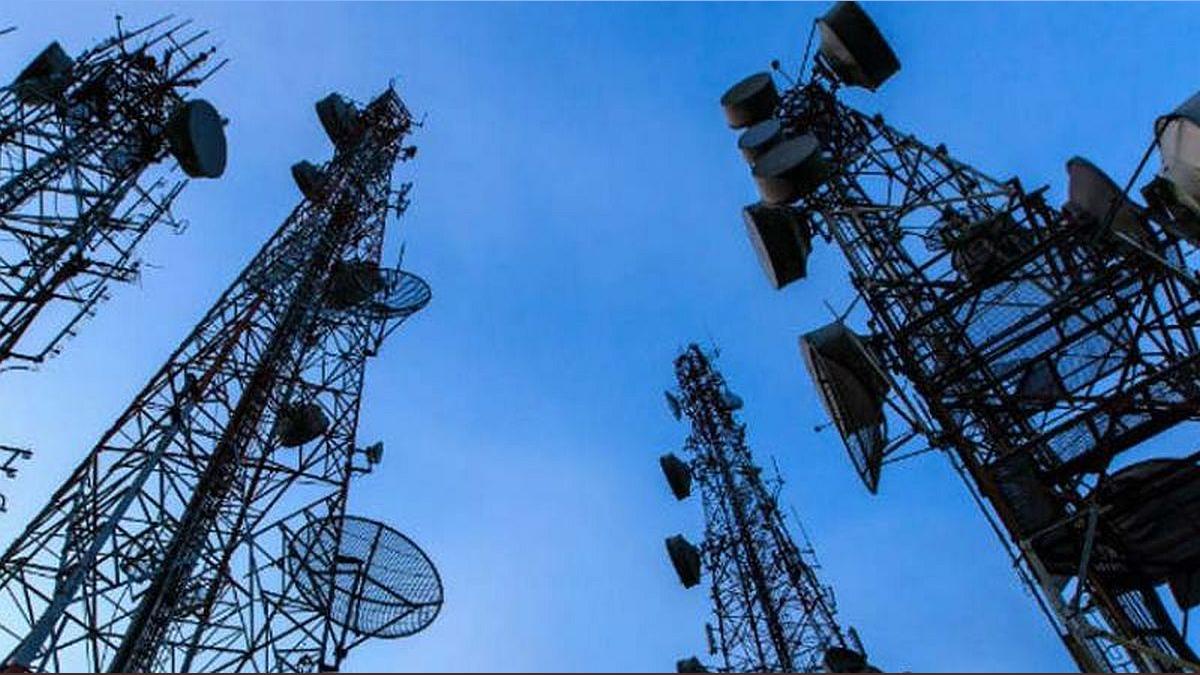Telecom Bill 2023: Govt to Take Control of Network in Emergency
India's new Telecom Bill grants government temporary control of telecom networks during emergencies. It also removes OTT services from the telecom definition and introduces non-auction spectrum allocation for satellite companies.

New Delhi, Dec 18 (PTI) A new telecom bill, introduced in Lok Sabha on Monday, allows the government to temporarily take control of telecom services in the interest of national security, drops OTT in definition of telecom services and provides for non-auction route for allocation of satellite spectrum.
The Centre will take temporary possession of telecom network in case of any public emergency or in the interest of public safety, as per the Telecommunications Bill, 2023.
The bill proposes to stop transmission and intercept messages in case of public emergency, in the interest of public, to prevent incitement for committing offence etc.
"On the occurrence of any public emergency, including disaster management, or in the interest of public safety, the central government or a state government or any officer specially authorised in this behalf by the central government or a state government, if satisfied that it is necessary or expedient so to do, by notificationtake temporary possession of any telecommunication service or telecommunication network from an authorised entity," the bill said.
The bill was introduced in the lower house by Communications Minister Ashwini Vaishnaw amid din over Opposition demanding statement by Home Minister Amit Shah on the Parliament security breach issue.
When Vaishnaw initiated the process of introducing the bill, BSP member Ritesh Pandey opposed its introduction as it was being brought in as a Money Bill and would not require approval of the Rajya Sabha. Pandey also sought that the bill be sent to a parliamentary committee since there are concerns relating to privacy.
According to the bill, the press messages meant for publication in India of correspondents accredited to the Centre or state governments shall not be intercepted or detained unless their transmission has been prohibited under rules applicable for public emergency, public order etc.
The bill proposes allocation of spectrum to satellite communications companies through administrative method.
The move is in line with demand of global satellite services companies and rejects argument made by domestic telecom players Jio and Vodafone Idea for allocation of spectrum for commercial use through auction only.
While the bill defines transmission of messages through wire or wireless technologies as telecommunication, official sources said the definition is as per the old Act, and the internet-based messaging and calling apps like WhatsApp, Telegram, Google Meet etc will be covered under IT rules and not under telecom laws as per government rules of business allocation.
With this move, the ongoing consultation process around over-the-top apps can no longer be continued by the Telecom Regulatory Authority of India (Trai), sources clarified.
"The central government shall assign spectrum for telecommunication through auction except for entries listed in the First Schedule for which assignment shall be done by administrative process," the bill said.
The first schedule has 19 cases for which spectrum will be assigned through administrative process including global mobile personal communication by satellites, national long distance and international long distance services, mobile satellite services, VSAT, In-Flight and maritime connectivity, BSNL and MTNL.
The bill defines cases when spectrum will be assigned through administrative method.
"Auction will be the preferred mode of spectrum allocation. However, in cases where auction of spectrum is not the preferred mode of assignment due to technical or economic reasons or to serve public interest or to perform government function, the spectrum will be assigned administratively," an official citing the bill said.
According to sources, the price for administrative allocation of spectrum for satellite service will be decided based on reference sought from Trai while BSNL and MTNL will need to match the auction determined price.
The Centre will take temporary possession of telecom network in case of any public emergency or in the interest of public safety, as per the Telecommunications Bill, 2023.
The bill proposes to stop transmission and intercept messages in case of public emergency, in the interest of public, to prevent incitement for committing offence etc.
"On the occurrence of any public emergency, including disaster management, or in the interest of public safety, the central government or a state government or any officer specially authorised in this behalf by the central government or a state government, if satisfied that it is necessary or expedient so to do, by notificationtake temporary possession of any telecommunication service or telecommunication network from an authorised entity," the bill said.
The bill was introduced in the lower house by Communications Minister Ashwini Vaishnaw amid din over Opposition demanding statement by Home Minister Amit Shah on the Parliament security breach issue.
When Vaishnaw initiated the process of introducing the bill, BSP member Ritesh Pandey opposed its introduction as it was being brought in as a Money Bill and would not require approval of the Rajya Sabha. Pandey also sought that the bill be sent to a parliamentary committee since there are concerns relating to privacy.
According to the bill, the press messages meant for publication in India of correspondents accredited to the Centre or state governments shall not be intercepted or detained unless their transmission has been prohibited under rules applicable for public emergency, public order etc.
The bill proposes allocation of spectrum to satellite communications companies through administrative method.
The move is in line with demand of global satellite services companies and rejects argument made by domestic telecom players Jio and Vodafone Idea for allocation of spectrum for commercial use through auction only.
While the bill defines transmission of messages through wire or wireless technologies as telecommunication, official sources said the definition is as per the old Act, and the internet-based messaging and calling apps like WhatsApp, Telegram, Google Meet etc will be covered under IT rules and not under telecom laws as per government rules of business allocation.
With this move, the ongoing consultation process around over-the-top apps can no longer be continued by the Telecom Regulatory Authority of India (Trai), sources clarified.
"The central government shall assign spectrum for telecommunication through auction except for entries listed in the First Schedule for which assignment shall be done by administrative process," the bill said.
The first schedule has 19 cases for which spectrum will be assigned through administrative process including global mobile personal communication by satellites, national long distance and international long distance services, mobile satellite services, VSAT, In-Flight and maritime connectivity, BSNL and MTNL.
The bill defines cases when spectrum will be assigned through administrative method.
"Auction will be the preferred mode of spectrum allocation. However, in cases where auction of spectrum is not the preferred mode of assignment due to technical or economic reasons or to serve public interest or to perform government function, the spectrum will be assigned administratively," an official citing the bill said.
According to sources, the price for administrative allocation of spectrum for satellite service will be decided based on reference sought from Trai while BSNL and MTNL will need to match the auction determined price.
You May Like To Read
TODAY'S MOST TRADED COMPANIES
- Company Name
- Price
- Volume
- Vodafone-Idea-L
- 11.65 (+ 3.56)
- 106772451
- Alstone-Textiles
- 0.28 ( -3.45)
- 44187760
- Mangalam-Industrial
- 0.88 ( -2.22)
- 39177573
- Sunshine-Capital
- 0.27 (+ 3.85)
- 35956340
- GMR-Airports
- 104.40 (+ 6.37)
- 30453005





